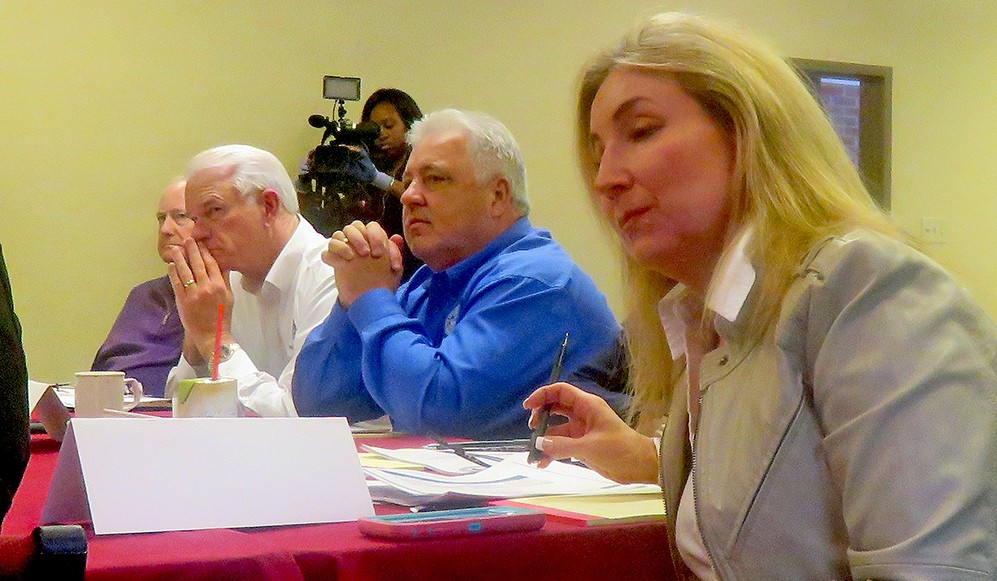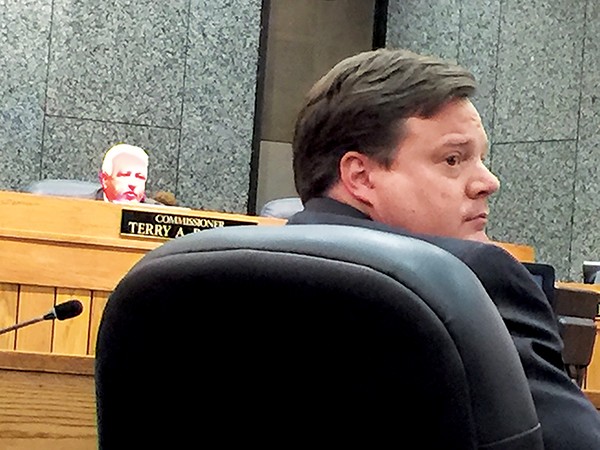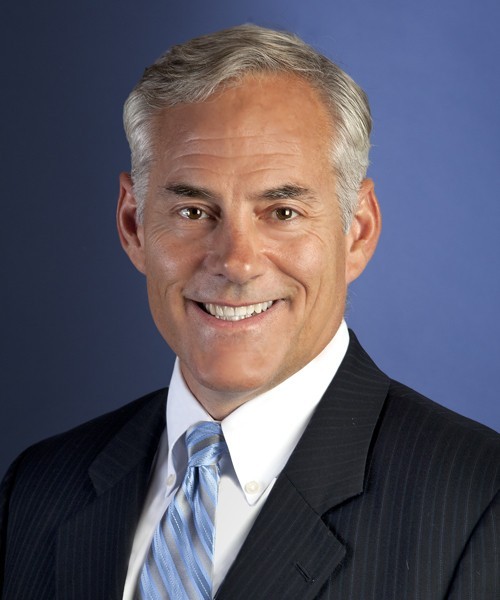 JB
JB
The contending parties at a recent weekend retreat: L to r: County CAO Harvey Kennedy; Mayor Mark Luttrell; Commission Chairman Terry Roland; and Commissioner Heidi Shafer
All systems are still go on Wednesday for the showdown between a rebellious Shelby County Commission and the administration of Shelby County Mayor Mark Luttrell over the issue of an independent counsel to serve the Commission only.
Resolution of the matter was to have occurred at a special Commission meeting called for last Thursday by Commission chair Terry Roland, but Commissioner Willie Brooks had duties rolling out a new pay station for FedEx on Thursday and had to be excused — thereby taking his vote out of the occasion and making for a more marginal circumstance.
At Brooks’ request, his colleagues agreed on an alternate formula whereby action on the independent-counsel matter could be accomplished on this Wednesday’s committee day in the County Building. As Commissioner Heidi Shafer, one of the leaders of the independent-counsel action said, the Commission plans to adjourn its committee work midway of the session and would go downstairs to the Commission auditorium to hold a special meeting of the full Commission on all the matters pertaining to the counsel controversy.
“Then back up to finish committees,” Shafer explained, in imagining a finish for Wednesday that would be bound to feel anti-climactic.
The counsel controversy had been germinating for some time but achieved full bloom during the Commission’s budget season in the spring when the Commission bi-partisan majority developed suspicions that Luttrell and his CAO, Harvey Kennedy, had been disingenuous in handling a pending fiscal surplus, low-balling an estimate of it in the amount of $6 million rather than what later investigation revealed to be perhaps as much as $21 million and working to frustrate any effort by the Commission to carve a one-cent sales tax decrease out of the surplus.
The Commission’s desire for an independent counsel of its own to help it evaluate fiscal realities of this kind and other policy matters became an immediate goal — not merely as an end in itself but as a first step in underscoring the commissioners’ feeling that they, and not the executive branch, are the supreme ruling entity in Shelby County government.
On behalf of the Administration, County Attorney Ross Dyer issued a ruling, based on his reading of the county charter, refuting the viability of a permanent independent attorney for the Commission, suggesting only that the Commission, with his concurrence, could employ “special” attorneys for specific and limited ad hoc purposes.
Julian Bolton, a lawyer and former Commissioner, had been named by the Commission to serve as its attorney, but Dyer has indicated he would refuse to sign the necessary contact to legitimatize Bolton’s position, and Luttrell subsequently issued a veto to the resolution that is subject to override by simple majority vote of the Commission.
Voting that override is one likely action for Wednesday, and Roland has suggested that the Commission, as a bargaining tool, might also exercise an option to dispossess Dyer, an appointee of Mayor Luttrell who, like all such mayoral appointees, is subject to Commission approval. The Commission could theoretically reverse its prior approval of Dyer’s hiring with a simple vote of reconsideration.
Roland and Shafer had previously released a lengthy opinion by Bolton, acting as an ad hoc attorney, in favor of their hiring an independent commission attorney.
They have subsequently released additional supporting legal opinions from three former members of the Shelby County Charter Commission. Below are excerpts from these opinions:
George F. Higgs
former member, Shelby County Charter Commission:
…The legislative body is not limited, except by budgetary limitations, and it was the intention of the Charter Commission that traditional separation of powers doctrines be observed. Independent and separate legal counsel is necessary to ensure that the executive and legislative branches exercise independence and separation from one another, thus creating a balance of power. Therefore, in my opinion, the proposed resolution is appropriate….Dr. Coby V. Smith
former Shelby County Charter Commission member
…The language was intended to allow the Shelby County Commission the freedom to solicit, select, and retain any talent or resources within their budgetary limits that they felt was essential to performing their legislative duties. This language specifically identified special (legal) counsel because of its importance and because of discussions regarding the various conflicts that occur between the Shelby County commission and the executive branch of Shelby County government…..
I have reviewed the proposed resolution, and have no hesitancy in recognizing that it is consistent with what the charter commission envisioned the Shelby County Commission should be empowered to do….Herman Morris Jr.
former chairman of the Shelby County Home Rule Charter Commission
…The intention and plain meaning of the language, in my opinion, is to allow the Shelby County Commission to employ special legal counsel to assist it, in carrying out its legislative functions. The wording of the section is broad and does not limit the power of the legislative branch, in any respect, except in the event of budgetary constraints…..
 JB
JB  Jackson Baker
Jackson Baker 
 Jackson Baker
Jackson Baker 
 Greg Cravens
Greg Cravens 
 JB
JB
